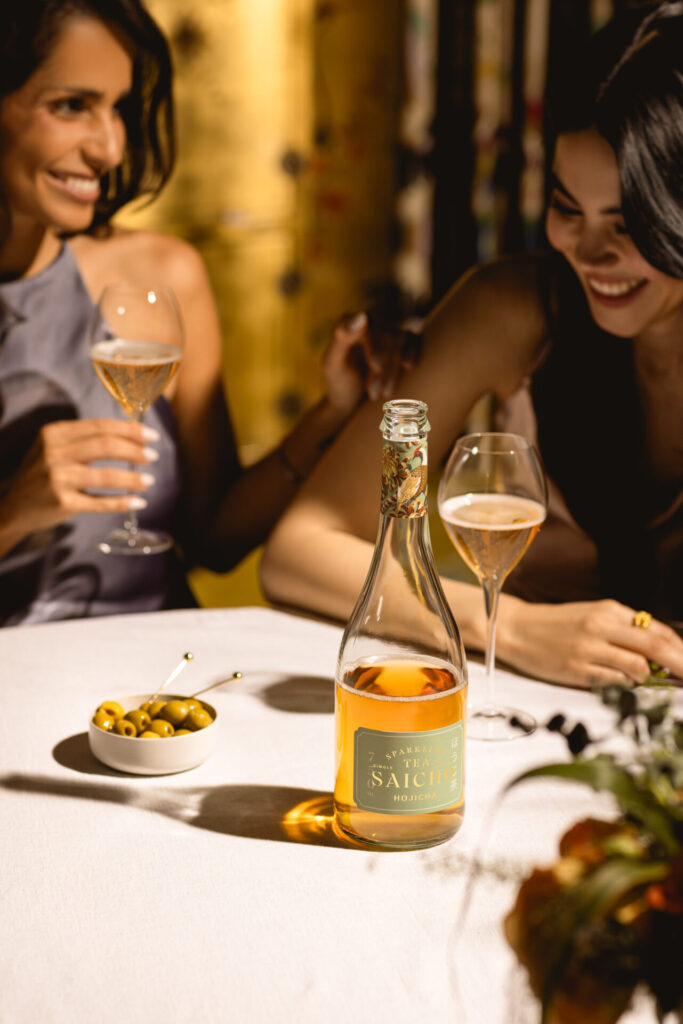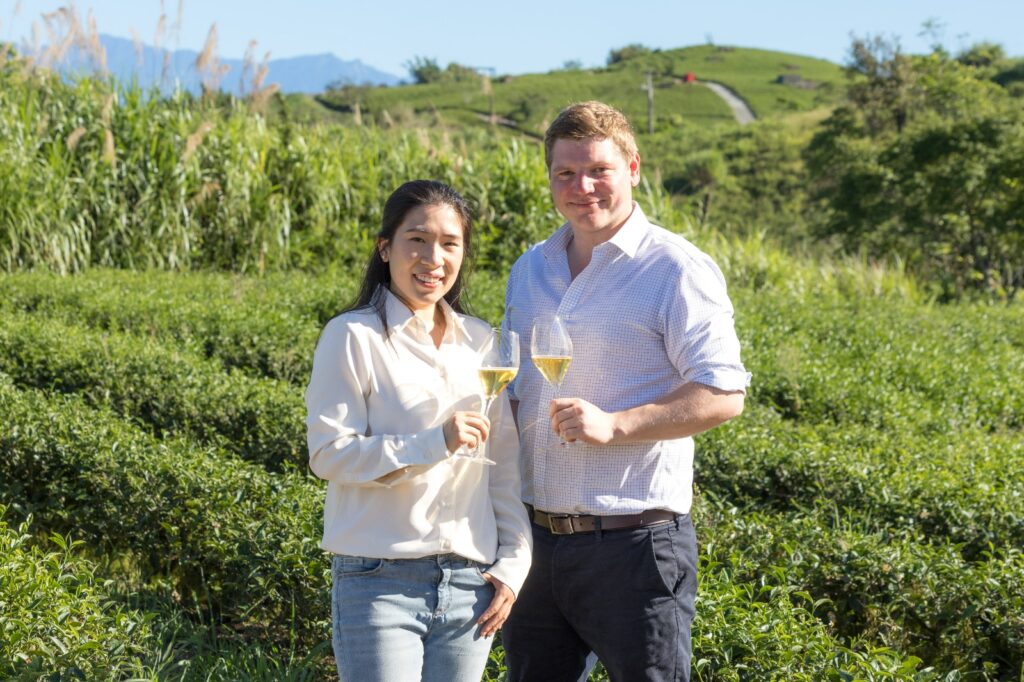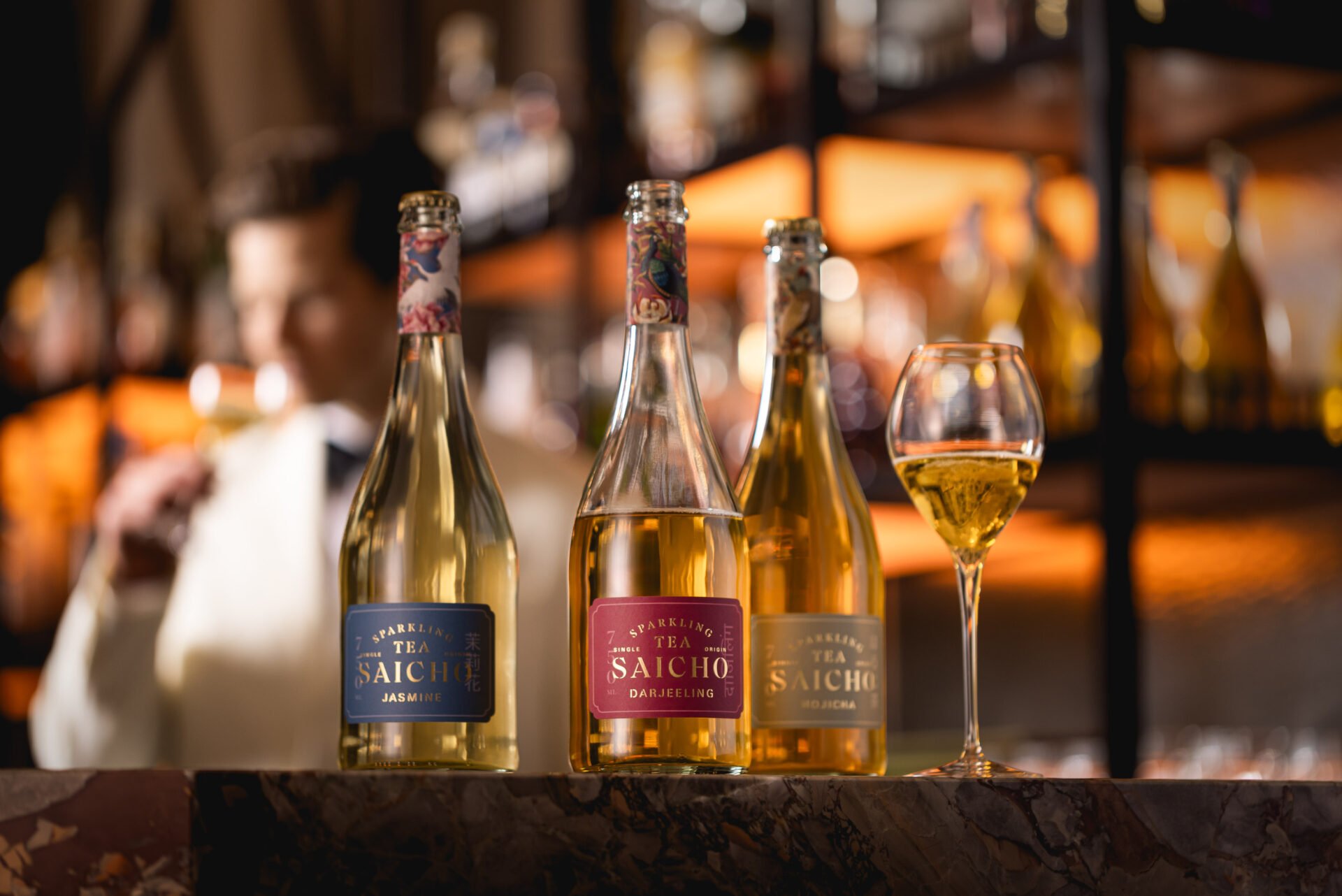The way the world drinks is changing, and fast. As health conscious consumers rethink what they want in a glass, premium alcohol-free choices are moving into the mainstream, sober bars are on the rise, and non-alcoholic bottle shops are appearing in most major cities. Alcohol-free options are no longer a simple after thought. From buzz-free botanicals to the advent of sparkling teas, the no- and low-alcohol beverages sector surged 13 per cent in 2024, while in the US alone the no-alcohol market is set to rise 18 per cent volume by 2028.
The movement is driven largely by Gen Z. With health advice only ever a swipe away, they have grown up more conscious of alcohol’s risks, and cite wellness and mindfulness as the reasons for an interest in the sober curious movement. And the industry is racing to keep up with this shift in diners who now want more than a sugary mocktail or lime soda when they skip the wine list.
‘It’s not about complete abstinence, it’s about conscious choice and balance,’ say Charlie and Natalie Winkworth-Smith, founders of Saicho, a new sparking tea that’s making waves on the fine dining scene globally. ‘People want sophisticated options that match their lifestyle, whether that’s wellness-focused living, mindful consumption, or simply wanting to enjoy a complex drink without alcohol’s effects.’
What consumers are seeking, they say, is no longer just a replacement for wine or spirits, but drinks with genuine quality and taste, something that’s enjoyed at the table rather than feeling like a compromise.

Certain cities have proven particularly fertile ground. ‘London’s fine dining scene has been incredibly receptive,’ says Natalie. ‘Sommeliers are genuinely excited about offering guests something beyond the typical non-alcoholic options.’
In Hong Kong, it’s the long-standing tea culture that has made the market especially receptive: ‘People there immediately understand the quality and complexity we’re working with’ she adds.
‘As more people understand tea’s potential for food pairing, we see sparkling tea carving out its own distinct category rather than being positioned as a wine substitute.’
Charlie Winkworth-Smith, Saicho Co-founder
And then there’s Dubai, where a cosmopolitan dining scene and a cultural appreciation for mindful consumption have created a surprisingly enthusiastic following. ‘It’s become the perfect environment for sparkling tea to flourish,’ she says.
The Rise of Sparkling Tea
Unlike many alcohol-free alternatives, sparkling tea doesn’t try to mimic something else. Instead, it offers a category of its own, with a background of centuries of cultivation.
‘Tea terroir is just as nuanced as wine terroir, there are different cultivars, processing methods, and seasonal variations,’ Charlie explains. ‘What excites us is that we’re only scratching the surface. As more people understand tea’s potential for food pairing, we see sparkling tea carving out its own distinct category rather than being positioned as a wine substitute.’
Yet for all its potential, the non-alcoholic space still carries misconceptions. ‘The biggest misconception is that non-alcoholic automatically means compromise, that you’re settling for something lesser,’ says Natalie. ‘Many people are surprised by the depth and complexity possible in a well-crafted sparkling tea.’

She points out another assumption: that choosing not to drink must mean you’re pregnant, driving, or avoiding alcohol for health reasons. Normalising the idea that non-alcoholic options can simply be about preference and pairing is a big part of Saicho’s mission.
Of course, placing a bottle of sparkling tea alongside champagne or wine in high-end dining settings hasn’t been without challenges. ‘Initially, there was scepticism from sommeliers and drinks directors who weren’t sure how to integrate tea into their programmes,’ Charlie recalls.
But the turning point was taste. Once restaurant teams experienced how Saicho’s sparkling teas can complement food, and learn how to serve them properly, the penny dropped. ‘We spend time with restaurant teams, showing them how our different expressions complement various dishes, how to serve them properly, and how to present them to guests,’ explains Charlie. ‘When done right, diners are genuinely impressed by the experience.’
Looking ahead, the Winkworth-Smiths are excited about the broader trajectory of the non-alcoholic category. ‘We’re excited about the increasing sophistication of the category overall, where more producers are focusing on genuine craftsmanship rather than just removing alcohol from existing products,’ they explain. ‘For us specifically, we’re exploring seasonal expressions and releases that showcase exceptional single-origin teas.’
For the duo, the future is clear: ‘It’s about treating non-alcoholic drinks with the same reverence and attention to detail that we give to fine wine and spirits.’









